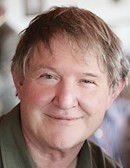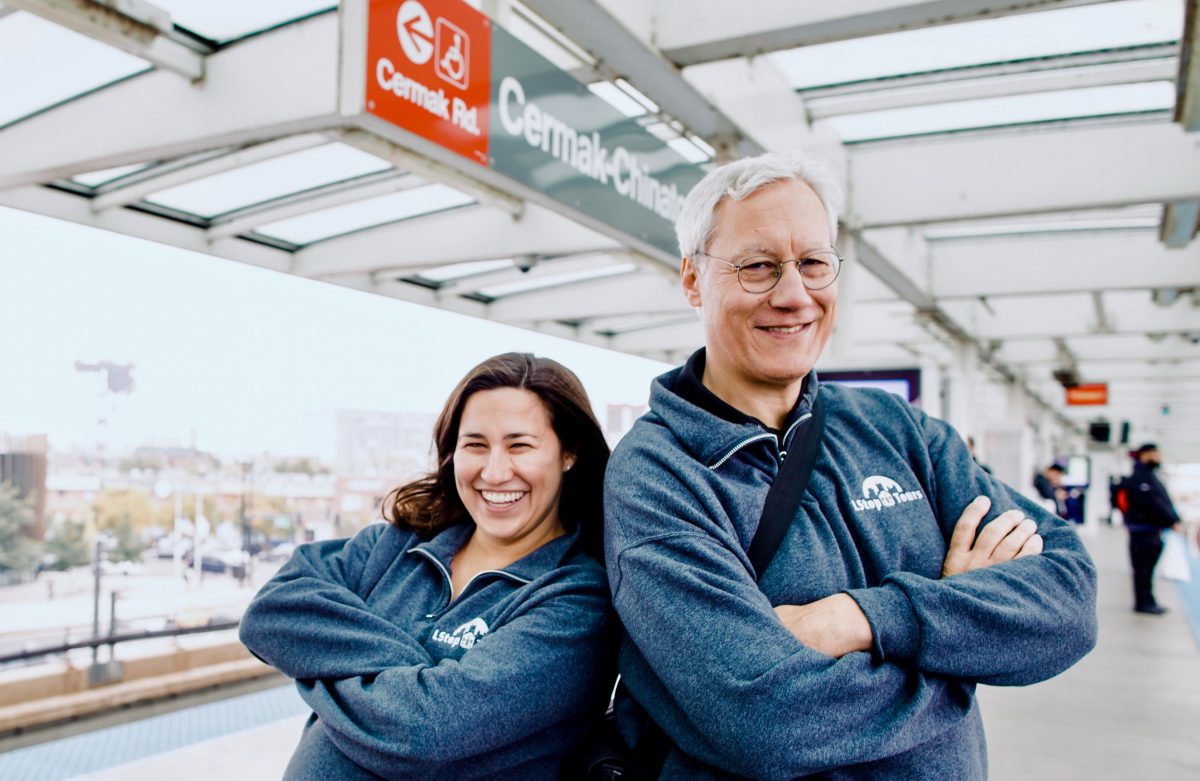Tom Schaffner shares his Medill story, from starting his own communications firm to starting a new company with his daughter.
Why did you come to Medill for graduate school after getting an undergraduate degree in journalism from the University of Kansas, a pretty good journalism school?
I had been working for three years at an entertainment-oriented public relations firm in Chicago but wasn’t doing the kind of writing I wanted to do. I decided that the nine-month path to an MSJ at Medill was the perfect way for me transition from a non-writing job back into the world of journalism. I was told many times by teachers and journalists that an MSJ was unnecessary for someone already holding a BSJ. For me, the MSJ was a necessary step to get myself back into the world of writing and editing, something that I missed and was more comfortable with.
What was your area of concentration? Favorite courses?
My undergraduate degree at Kansas was in newswriting, so I thought I would concentrate in something different at Medill. I chose the Magazine sequence and thoroughly enjoyed Professor Peter Jacobi, his classes, teaching style and, of course, his legendary trip to New York where we visited the staffs of top magazines at their offices. I also particularly enjoyed ethics and media classes taught by Richard Schwarzlose. He would start with a simple dilemma but keep adding complications so that by the end of class, everyone saw the issue from a completely different perspective.
What was your first job after Medill?
Shortly after graduating from Medill (1980), I accepted a communications specialist position at the National Live Stock & Meat Board, a Chicago-based organization that conducted programs of research, education, advertising and promotion on behalf of the nation’s beef, pork and lamb industries. When I left six years later, I had been promoted to Director of Communications and was responsible for developing and implementing internal and external communications programs to trade and consumer audiences nationwide. I learned two very important things at the Meat Board, both of which had a profound influence on the rest of my communications career: 1) almost any transaction or project underway at a company or business organization has a communications issue at its core and 2) there is an inexhaustible need for people who know how to communicate effectively at these very same companies or organizations. These gems were the inspiration I needed to become an entrepreneur.
Before you opened Schaffner Communications, you created a newsletter called the Chicago File. Can you talk about your mission and how you did it?
When I was a freshman at Kansas (1977), I subscribed to the Chicago Daily News (newspaper) so I could keep up with everything that was happening back home. Unfortunately, the newspaper, which traveled to me via the U.S. Postal Service, usually arrived about 10 days late and came in bunches of about five or six at a time. I remember thinking at the time that there had to be a better way to keep up with news from Chicago. I filed the thought in my mind and eight years later developed and produced a sample newsletter for former Chicagoans that became known as the Chicago File (for Chicagophiles). The sample issue evolved into a monthly publication that contained news and features about what was happening in Chicago — buildings going up and coming down, the latest indicted politicians, new transit lines being contemplated and the most popular feature, a column called “Only in Chicago” which highlighted quirky events, bizarre activities and odd news items that could only happen in Chicago. Subscribers were former Chicagoans, people who no longer lived in the Chicago area but wanted to know what was going on there. At its height, the Chicago File had several thousand subscribers around the world and received a lot of coverage and publicity from major news outlets across the country. Its cult-like following and popularity was, in essence, my 15 minutes of fame. I continued to publish the Chicago File for six years and although it was breaking even financially, I decided to shut it down in 1991, literally at the dawn of the Internet. Today I am recycling much of that 35-year-old Chicago File material into an online blog for my newest entrepreneurial adventure, L Stop Tours. It’s deja vu all over again.
When did you launch your own firm?
In 1985, while still working at the Meat Board, I had the opportunity to work with first-time ever desktop publishing software and a newly invented HP laser printer. I immediately saw the future of publishing — writers, graphic designers, typesetters, layout personnel and printers could now be combined into a single person and, by so doing, could speed the publishing process and remove significant costs from the system. For someone like me who spent much of his career producing time-intensive newsletters, the new design software and printers were a game changer, they represented a tremendous new business opportunity for anyone willing to take the plunge. I decided to open a communications firm, Schaffner Communications, which was incorporated in July 1986. I was 30 years old at the time. My first corporate act? I ran out to a store and bought a Macintosh computer, Pagemaker design and graphics software, Microsoft Word 1 for the Mac, Filemaker (database software) a laser printer, a daisy wheel printer (for envelope labels) and a few other miscellaneous items for $15,000. Today, a MacBook Air laptop computer and a laser printer alone cost less than 10 percent of that amount. Too bad I couldn’t delay my purchase for 35 years — I would have saved plenty.
What was the mission of Schaffner Communications? What did your business focus on?
Schaffner Communications was designed from the get-go to be radically different than other firms in the marketplace. For starters, we positioned ourselves as a communications consulting firm and not a public relations firm because we wanted to portray ourselves as experts in the field of communications. More specifically, our area of expertise was to help businesses — large and small — build and maintain effective communication systems that delivered important and timely messages to key corporate audiences consistently, effectively and efficiently. For us, quality corporate communication belonged in the hands of skilled professional journalists — so we made it company policy to hire account personnel with only those qualifications.
How did your Medill skills contribute to the success of Schaffner Communications?
Journalists know how to write, communicate, develop creative solutions to problems, gather information, ask questions, edit copy so that reads better than the previous version, and much more. I honed all of these skills at Medill and put them to good use at my consulting firm. At Schaffner Communications, we used our journalistic skills to improve the quality of communications at businesses and corporations across the country — sharper, crisper editing of key corporate documents, improved media relations with more transparency, faster periodical production cycles with upgraded equipment and technology, increased collaboration at all levels of project management and a host of other techniques and initiatives.
You were the agency of record for a $4 billion wholesale grocery cooperative for many years. How did you not only maintain that business, but grow it? What were your secrets of success?
This Los Angeles-based firm outsourced all of their communications (internal and external) to Schaffner Communications for 19 years (1994-2013), they were one of our largest and longest-tenured clients. One hundred percent of the clients served by Schaffner Communications over the past 35 years came to us via a referral, and this particular client was no exception. We were recommended to the senior management team by friends of mine who had worked there as labor management consultants. While it’s true that quality work speaks for itself, a good referral gets you in the door and provides you with an opportunity to prove yourself over the long haul — and working anywhere over the long haul is a sure way to grow the business. Another reason we were able to hold onto this client for such a long time is because I worked hard to develop a strong, dynamic relationship with the chief executive officer of the company, as well as the senior management team. With their constant and unwavering support of our efforts, it was relatively easy to develop and maintain effective and efficient communication systems and programs throughout the company.
Can you talk about your next chapter – “L” Stop Tours? How did it come to be and how’s it going so far?
A little over a year ago, I started a new business with my daughter, Lindsay, a Chicago tour company called L Stop Tours. We’re only in our second season but already the business is tremendously successful. Our tours are different — we utilize Chicago’s elevated transit system (the “L”) to travel to interesting neighborhoods throughout the city and, upon arrival, explore the history, culture and food of the area via walking tours. We believe that you haven’t seen Chicago if you haven’t been to the neighborhoods and we are the only company in the metropolitan area that travels to these areas via the L. All of our tours start in the Loop and then head to such neighborhoods as Pilsen, the Prairie Avenue Historic District, Chinatown, Wicker Park and Fulton Market. We also have special tours that go to Andersonville, Evanston, breweries along the Blue Line and another that visits historic Chicago taverns. I do the vast majority of the tours because I love Chicago, have lived here my entire life and know a lot about city’s history, culture and traditions. At age 64 I finally found my dream job!
Photo: Tom Schaffner (right) with daughter, Lindsay McNaught, co-owners of L Stop Tours, on the El platform, of course!




